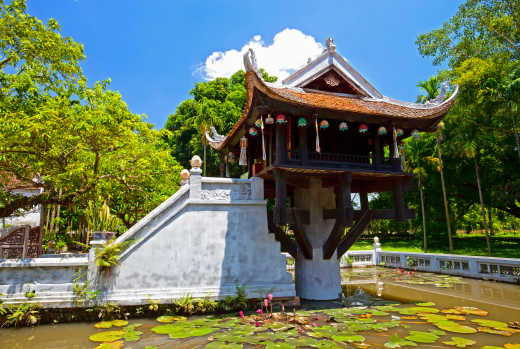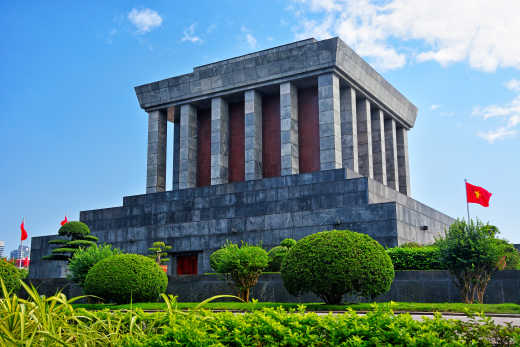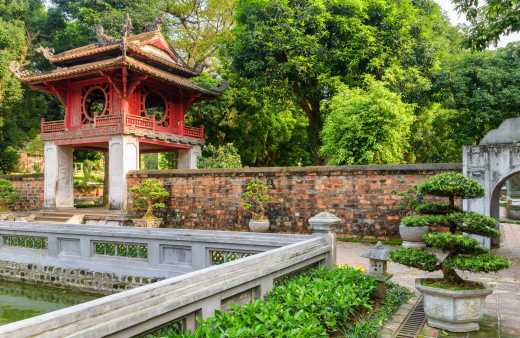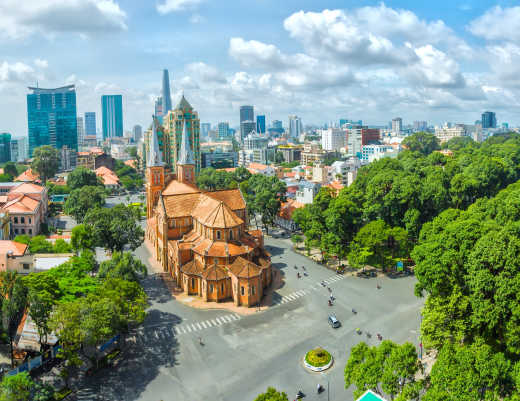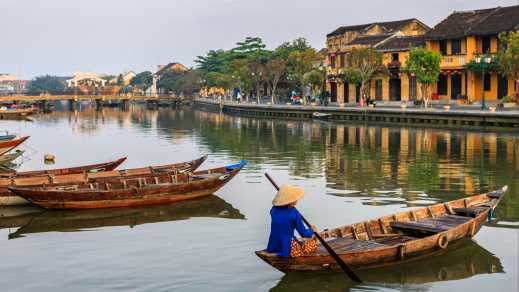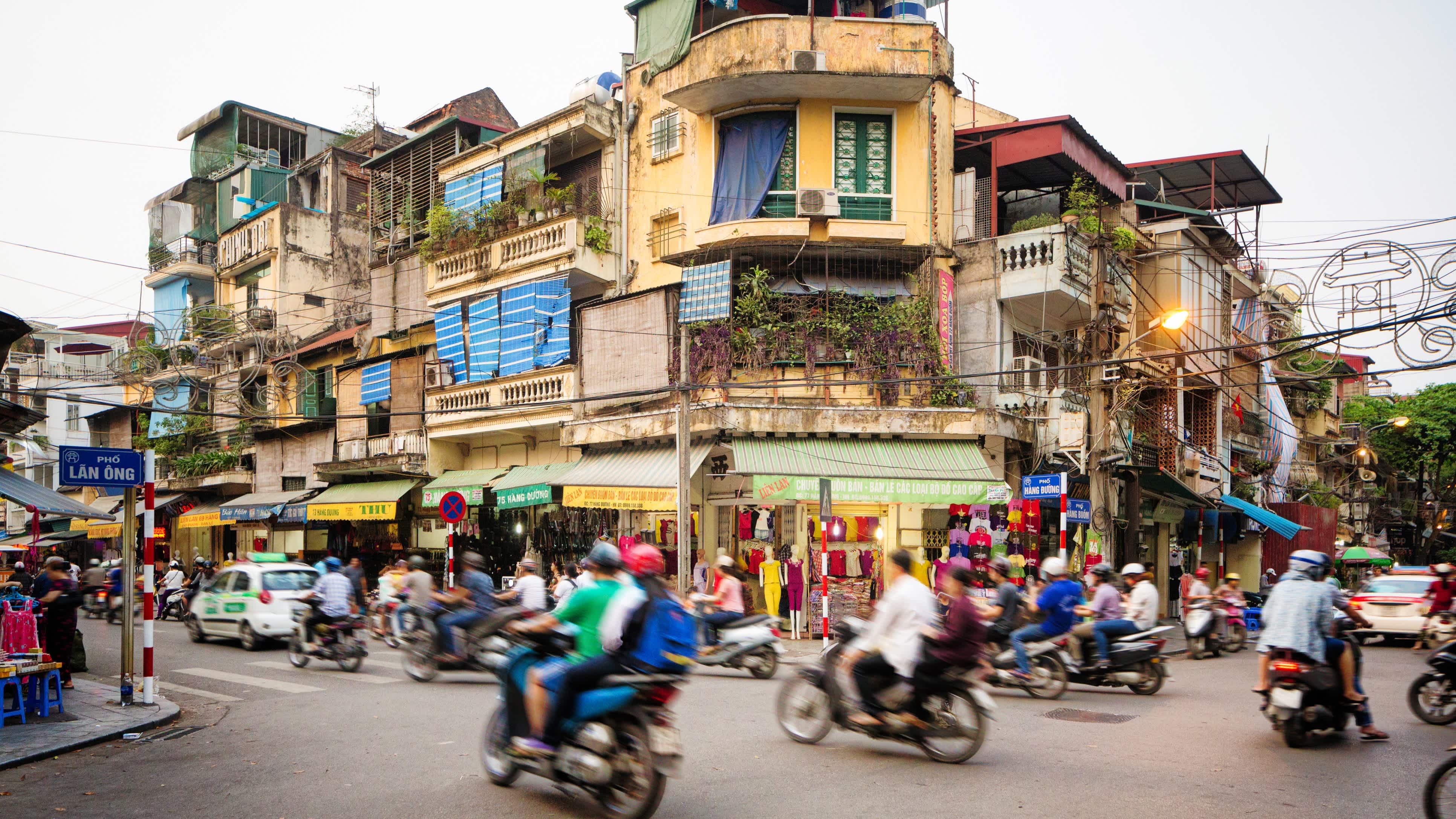
Hanoi Tours
The top sights, highlights, tours & travel itinaries curated by our Travel Experts.
Our Expert Tips for Your Hanoi Vacation
There is always something to see in Hanoi, where the proudly preserved Vietnamese culture meets the progress of modernity. The more than 1,000 year old city offers a rich treasure of monuments. Temples, old citadels, theatres and museums provide variety, while the surrounding area boasts breathtaking nature.
Education, entertainment and sublime beauty are guaranteed on your exploration tours. The best time to travel is from September to November and March to April, with mild weather and little rain. Less
![Asia Vietnam Hanoi One Column Pagoda Hanoi One Column Pagoda]()
Single-column pagoda
Symbolizes a lotus flower in water
![Asia Vietnam Hanoi Ho Chi Minh Mausoleum Hanoi Ho Chi Minh Mausoleum]()
Ho Chi Minh Mausoleum
The last resting place of the revolutionary leader
![Asia Vietnam Hanoi Temple of Literature Hanoi temple of literature]()
Temple of literature
Is dedicated to the scholar Confucius
What to See During Your Hanoi Vacation?
1. Ho Chi Minh Mausoleum
The colossal mausoleum on Ba Dinh Square is one of the most famous monuments in the country. It is the last resting place of the former leader Ho Chi Minh, who is simply called "Uncle Ho" by the Vietnamese. The impressive granite building is also reminiscent of Lenin's mausoleum. As the mortal remains are sent to Russia for maintenance every year from October onwards, it's best to check with the hotel to see if the mausoleum is open.
2. Single-Column pagoda
Standing on an elegant base rising from the lotus pond, the pagoda symbolizes a lotus flower in the water. Built around the year 1050 during the Ly dynasty, it is one of the most beautiful temples in Vietnam. Inside is a golden statue of the Buddhist goddess Quan Am, surrounded by magnificent porcelain vases with flowers and fruit as gifts. You should not miss the holy bob tree behind the temple on your Hanoi trip. According to legend it is an offshoot of the tree under which Buddha was enlightened.
3. Temple of Literature
The picturesque temple of literature is dedicated to the scholar Confucius. The building is well preserved and is an excellent example of traditional Vietnamese architecture. On the grounds there are sights such as the Lake of Literature, the Fountain of Heavenly Clarity, the Turtle Stele, several pavilions, courtyards and passageways once frequented by the nobility. Stroll through the immaculate gardens and be inspired by beauty and academic ambition.
4. Ho Chi Minh Museum
The huge building of the Ho Chi Minh Museum shines in dazzling white and red flags and wrestles respect from the guests. The carefully designed exhibition shows the life of the revolutionary leader in eight chronological stations. Numerous miniatures, artifacts and gifts of national and international origin can be viewed. In addition, the market opposite the museum is a real insider tip: enjoy the local variety with delicious pho soup, traditional che pudding and French baguette.
5. Tran-Quoc Pagoda
The pagoda, festively decorated in orange tones, is located on the eastern side of the picturesque West Lake and can be seen from afar on your Hanoi trip. The name of the over 1,500 year old temple means "protect the land". It is especially popular for celebrations like the Tet, the Vietnamese New Year.
6. Quan Thanh Temple
The imposing Quan Thanh Temple is the oldest temple in Hanoi. The 11th century building is dedicated to the Taoist deity Tran Vu and honours him with the second largest bronze statue in the country. The inhabitants of Hanoi traditionally come here on Tet and on the first and fifteenth full moons of the Vietnamese lunar calendar to pray for health and happiness for themselves and their relatives. You can also watch performances of traditional martial arts such as vovinam. Less
Other Places to Visit During Your Tour
TourlaneCare

